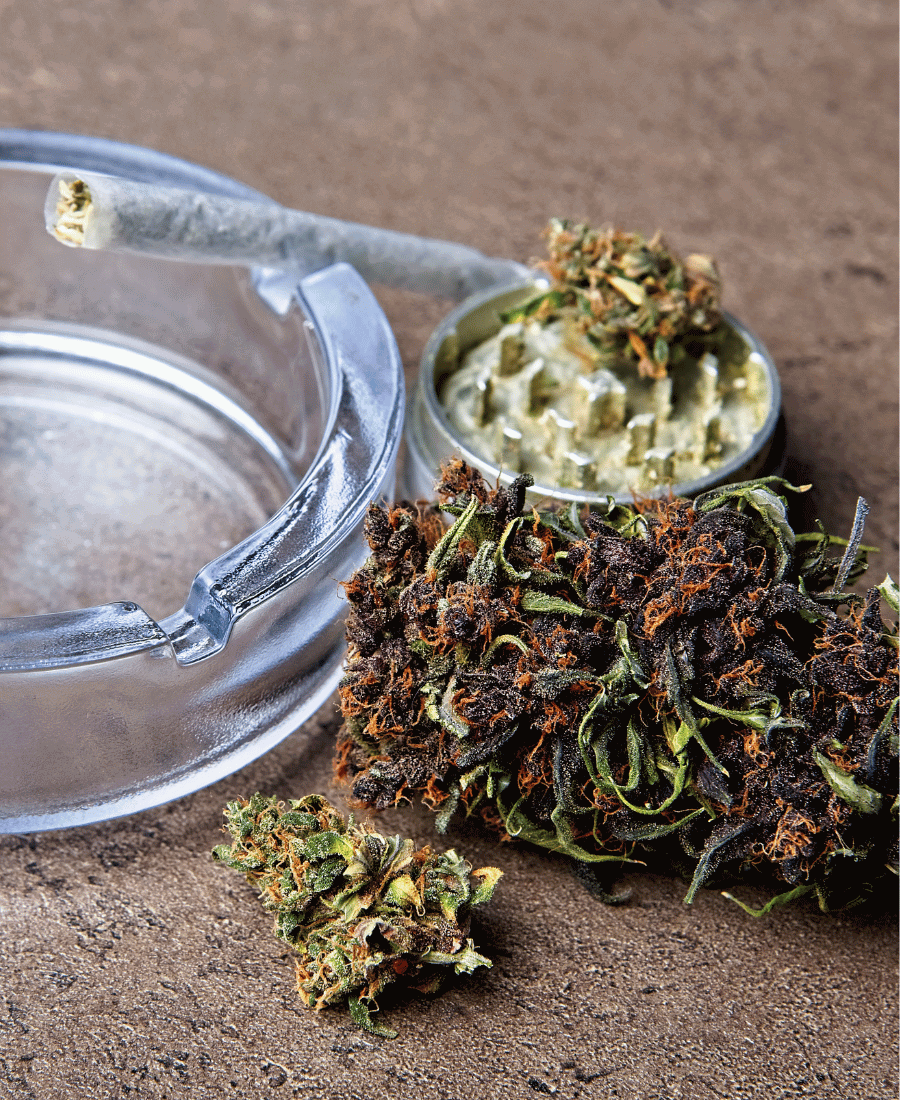Whether for medical reasons or for recreational use - anyone who consumes cannabis often asks themselves the question: How long will it actually remain detectable in my blood? Especially when a drug test is imminent, it is important to know what to expect. In this article, you will find out how long THC remains in your blood, which factors influence the detection time and what you should pay attention to in order to avoid unpleasant surprises. Whether you're an occasional user or a regular user, you'll get the answers you're looking for here.
What influences the detection time of THC in the blood?
The detection time of THC in the blood is influenced by several factors:
1.frequency of use: occasional users have shorter detection times, while THC remains in the body longer in long-term users.
2.body fat percentage: THC is stored in fatty tissue, therefore a higher fat percentage prolongs the detection time.
3.metabolism: a fast metabolism accelerates the breakdown of THC, a slow metabolism slows it down.
4.amount consumed: the more THC is consumed, the longer it remains detectable.
5.type of consumption: smoking leads to faster but shorter detectability, while oral intake often leads to longer detection times.
6.individual differences: genetics and general health also influence how long THC remains in the blood.
These factors ensure that the detection time varies from person to person.


Occasional vs. long-term users: How long does THC stay in the blood?
The detection time of THC in the blood differs considerably depending on the frequency of use:
Occasional users: If you only use cannabis occasionally, THC usually only remains detectable in the blood for 1 to 3 days. As the body breaks down THC more quickly with infrequent use, the detection times are relatively short.
Continuous users: If you consume regularly, THC can be detected in the blood for much longer - often up to 30 days or even longer. This is because THC accumulates in fatty tissue and is only released slowly, which considerably extends the detection time.
In short: while THC quickly disappears from the blood of occasional users, it can be detectable for weeks after the last use in long-term users.
Single use: How long does THC stay in the blood?
THC usually remains detectable in the blood for 1 to 3 days after a single use of cannabis. However, this period can vary depending on the individual metabolic rate and the amount consumed. In some cases, THC can even be undetectable after less than 24 hours, especially with low doses and a fast metabolism.
Conclusion: After a single use, THC is often only detectable in the blood for a short time, usually between 1 and 3 days, depending on your body and the exact dose.
Blood test vs. urine test: What is the difference?
Blood test: A blood test measures the current THC content in your body and shows whether you have recently consumed cannabis. As THC is only detectable in the blood for a relatively short time, this test is particularly suitable for detecting acute consumption - for example during traffic checks. After a single use, THC is usually only detectable in the blood for 1 to 3 days, but it can remain detectable for longer in regular users.
Urine test: In contrast, a urine test does not detect the active THC, but the degradation products (THC metabolites), which remain in the body long after the actual consumption. THC can therefore be detected in urine for much longer - up to 7 days for occasional users and even several weeks for regular users. Urine tests are therefore better suited to detecting past consumption over a longer period of time.
Blood tests are suitable for detecting acute cannabis use, while urine tests offer a longer detection time and can also detect past use.

Can the detection time of cannabis in the blood be shortened?
There are some methods that are claimed to be able to reduce the detection time of THC in the blood, but their effectiveness is limited and not scientifically proven. Here are some common approaches:
1. drink plenty of water: hydration can help boost metabolism and aid the elimination of THC. However, this only has a limited effect on the detection time in the blood, as THC is mainly stored in fatty tissue and cannot simply be excreted by drinking.
2. sport and exercise: Physical activity can stimulate the metabolism and promote fat loss, which could theoretically also break down THC faster. But be careful: Intense exercise shortly before a test can also lead to stored THC being released back into the blood, which could increase the concentration.
3. healthy diet: A balanced diet can support the general metabolism. In particular, a low-fat diet could help to reduce the amount of THC stored in fatty tissue, but again, the effects are limited to the detection time.
4. detox products: There are special detox products that promise to remove THC from the body faster. However, these products are often expensive and their effectiveness is controversial. Some contain diuretics that merely cause more urine to be produced - which can affect detectability in urine tests, but has little effect on blood tests.



